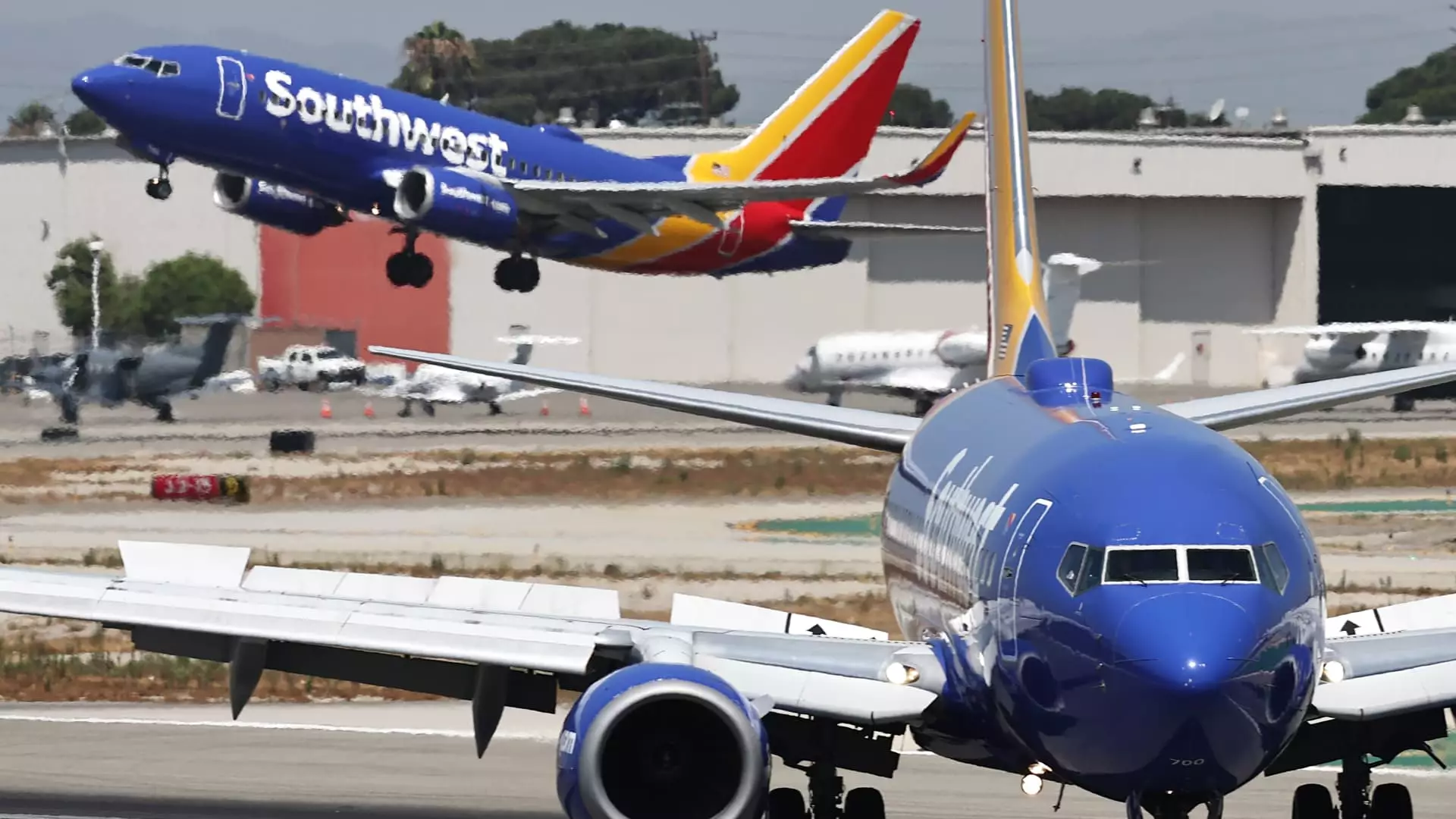In a significant strategic move, Southwest Airlines has adjusted its revenue forecast for the third quarter, reflecting an optimistic shift in its financial outlook. Initially predicting a decline in unit revenue by 2%, the airline now expects an increase of up to 3% compared to the same quarter last year. This revision indicates the company’s resilience in facing economic challenges and its ability to adapt to changing market conditions. Such robust expectations may be a response to market pressures, specifically from activist investors like Elliott Investment Management, who have been vocal about the need for restructuring within the airline.
Alongside the revised financial predictions, Southwest has taken steps to bolster its leadership team. The board’s decision to authorize $2.5 billion in share buybacks reflects a commitment to enhancing shareholder value despite current operational challenges. The appointment of Bob Fornaro, a seasoned figure in the airline industry, to the board is strategically significant. Fornaro’s history with Southwest, including his previous role as CEO of AirTran—an airline that Southwest merged with—positions him as a vital connector to the airline’s past while providing insights into navigating future challenges. His familiarity with Southwest’s operations and culture could serve as an asset as the airline seeks to align its strategies with shareholder expectations.
In a bid to reassure investors, Southwest executives, led by CEO Bob Jordan, convened an investor day presentation at the company’s Dallas headquarters. During this critical gathering, the management aimed to articulate a vision for future profitability amid mounting pressure from Elliott, which has called for significant leadership changes. The presentation likely focused on the strategic transitions the airline is implementing, such as the introduction of designated seating and enhanced legroom options, which have the potential to create new revenue streams.
While navigating market changes, Southwest maintains its commitment to customer service, particularly in relation to baggage policies. The airline’s decision to uphold its long-standing practice of permitting two free checked bags is notable, as it differentiates Southwest from competitors leveraging ancillary fees. According to leadership, this policy could lead to increased market share that outweighs any potential revenue losses from implementing such fees, suggesting a focus on long-term customer loyalty over short-term gains.
Operational Adjustments and Future Challenges
However, not all decisions have been positively received. Recent announcements regarding cuts to Southwest’s service in Atlanta and potential job losses for over 300 employees reflect an urgent need for cost management. This move is particularly bold given the implications it has for employee morale and operational capabilities. With leadership transitions on the horizon—Gary Kelly, the executive chairman and former CEO, preparing to step down—Southwest faces a pivotal moment in establishing a sustainable operational model while responding to investor scrutiny. Elliott’s persistent call for changes in leadership illustrates the heightened expectations for accountability within the airline, setting the stage for a critical period ahead as Southwest seeks to redefine its place in the competitive airline industry.

